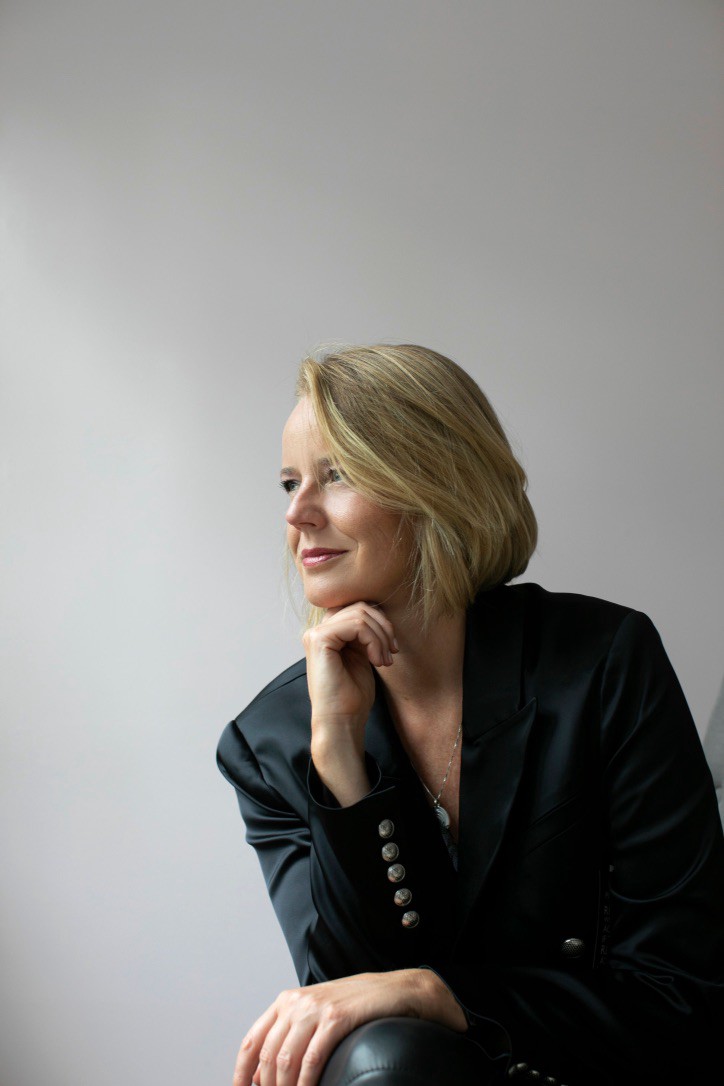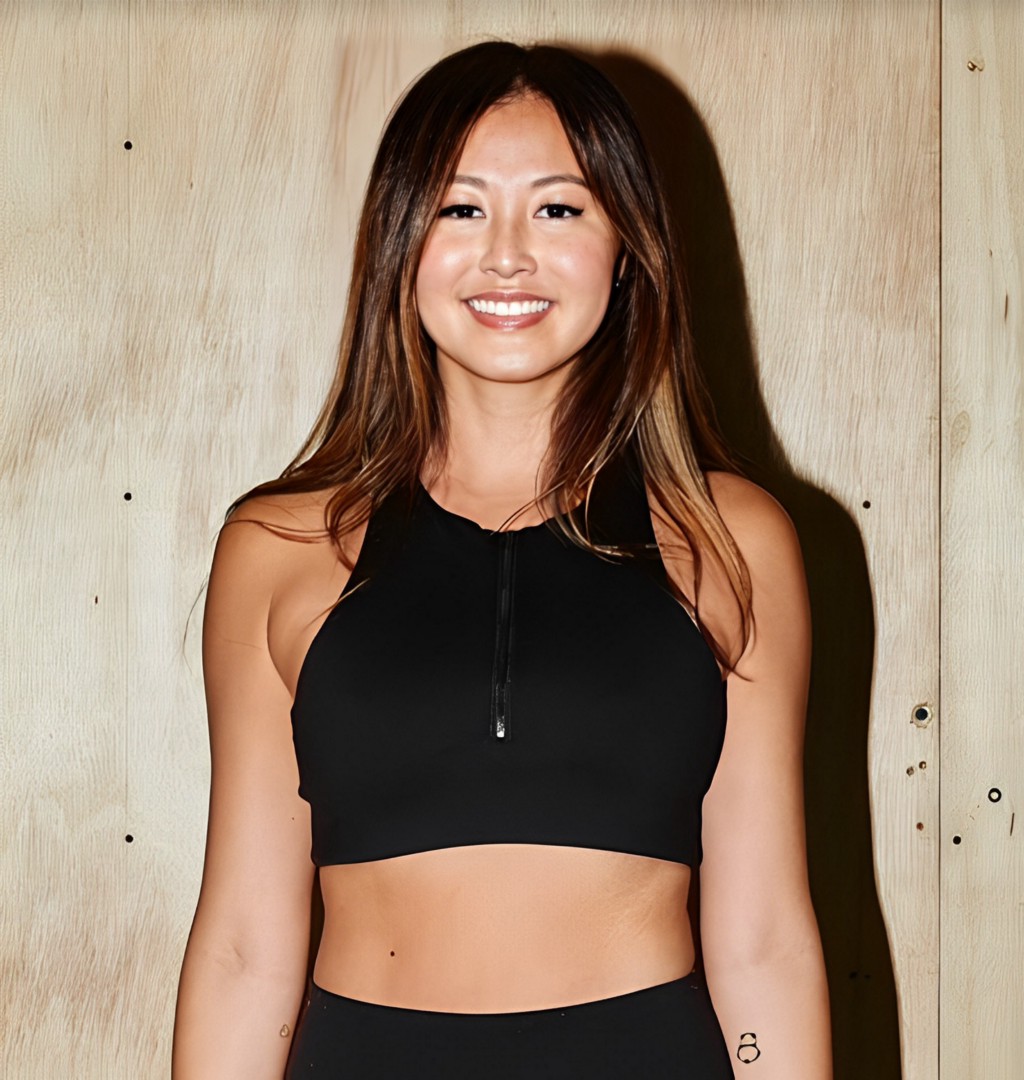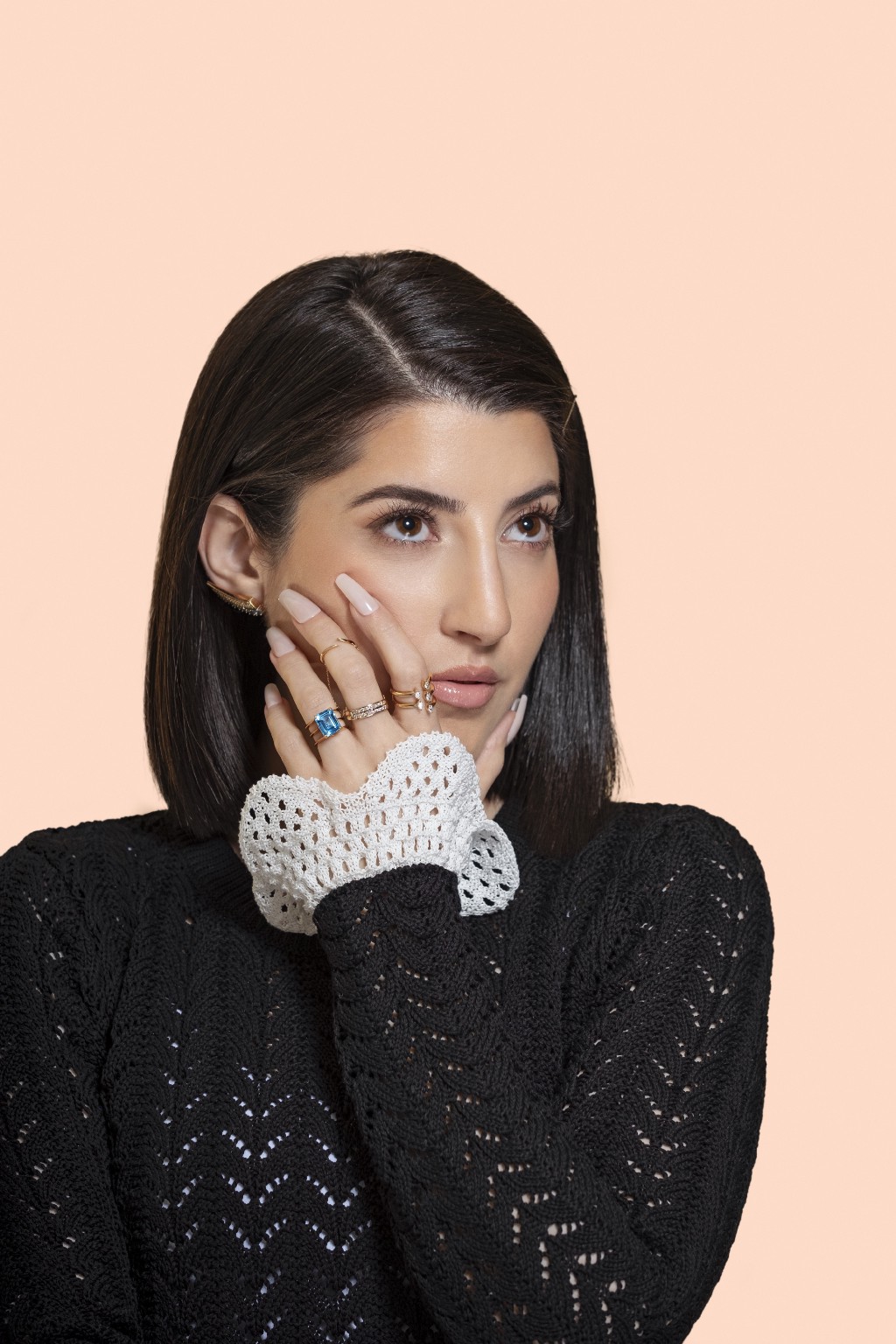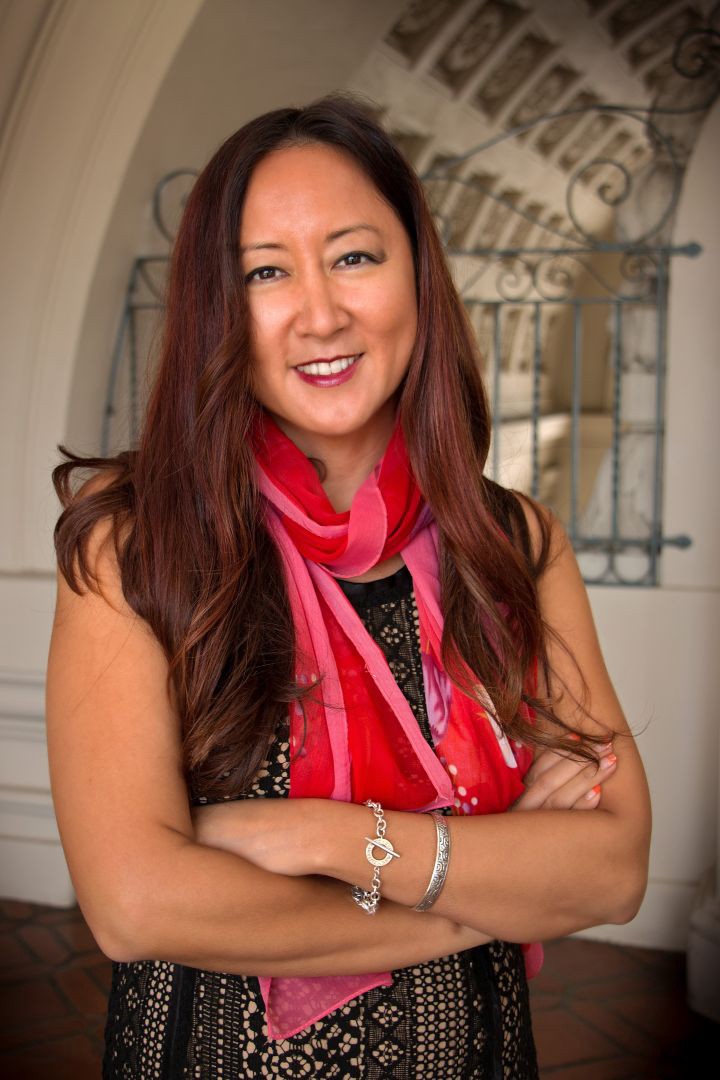Women In Wellness: Fiona Riesch of HECH On The Five Lifestyle Tweaks That Will Help Support People’s Journey Towards Better Wellbeing
An Interview With Candice Georgiadis

Taking care of your mental well-being as a daily self-care practice. At the end of every day, I take time to unwind and ground myself. For me this is cooking, I think everyone needs to discover what this is for themselves and try to bring it into their days as often as possible.
As a part of my series about women in wellness, I had the pleasure of interviewing Fiona Riesch.
Fiona Riesch is the HECH USA representative and advisor for premium retail & luxury hospitality — international, overseeing sales and development across new markets. She is passionate and truly people-centered, with 26 years of experience in luxury hospitality. Her career has spanned three continents and nine countries and all elements of the industry. She has worked in operations from the beginning to General Manager, supported Asset Management Teams, held regional positions, led multi-billion dollar openings and takeovers and started her own company. Fiona has a natural ability to build high-performing, motivated teams who are proud of the work that they accomplish. As an Aquarius, she has an innate creativity with which she approaches life, and her appreciation for beauty in all the complex myriad ways it takes shape, deepens her understanding of HECH’s commitment to their roots as a third generation family business, as well as the significance of what they achieve through passion and innovative scientific research.
Thank you so much for joining us in this interview series! Our readers would love to “get to know you” better. Can you share your “backstory” with us?
I started out in luxury hospitality over 26 years ago and worked my way up through the operations side of the industry to general manager over the course of my career. Six years ago I started my own business and now most of my hospitality work is done on the consulting and design side of things. I was drawn to the hospitality industry at a very young age and continue to love working in a fast-paced, creative, collaborative environment where on any given day you have a new complex problem that needs to be solved. My work has taken me to countless incredible places, countries and cultures that I want to return to again and again, though out of all of them it’s the United States, New York specifically, that has captured me and is where I’ve settled. However, my true roots will always remain in Southern Germany where I grew up.
Can you share the most interesting story that happened to you since you started your career? What were the main lessons or takeaways from that story?
The stories of a hotelier are endless, and we of course can’t really share them. So what I have is more of a personal growth story. Given that the luxury hotel world was very male-driven when I started, I tried — and I am sure many other women did as well — to work hard not only to be better but to truly be seen as the best. Our managers back then were our icons, and we tried to impress them in every circumstance with our hard work, knowledge, revolutionary ideas, and by beating deadlines. Basically to truly go above and beyond in every way that we could. It wasn’t simply about advancing in our careers, it was about our pride as well. I remember once, my mentor at the time who is still my biggest mentor to this day, gave me a strategic project to develop. I worked on it for days, while still doing my shifts, and I was convinced that what I had mapped out was the right way to go. When I was presenting and people in the room came back with questions about certain aspects of my plan, I argued and fought back, convinced of the strength of my idea and that I needed to stand my ground. At one point my mentor started to laugh, he broke all the tension in the room and told me that it was overall a good plan, but sometimes you need to listen and see if it can be made better, to take it back and tweak to perfection, and most importantly to know when and which battle you need to fight. To this day that advice stays with me. It might seem basic, but when you are in your early twenties, on a clear career path, and a woman who has to prove herself in a male-dominated industry, it was invaluable advice. My mentor and I still talk frequently to this day. I now sit in his chair figuratively speaking, and I know which battles to fight and when to listen and adapt. To recognize that hard-working individual in front of me, becoming a mentor myself.
It has been said that our mistakes can be our greatest teachers. Can you share a story about a mistake you made when you were first starting? Can you tell us what lesson you learned from that?
The biggest lesson I have learned, without question, is that of patience. Mistakes have been made when I didn’t have it, and I have learned how to cultivate it, how to know when it’s not there, and how to return to it when I need to. What a teacher patience is.
When it comes to health and wellness, how is the work you are doing helping to make a bigger impact in the world?
I have worked all my life in luxury hospitality, which nowadays means more than just hotels. It has expanded to spas, sports, MemberClubs, etc. These spaces are experienced and lived through design. From the architectural design of the space to the color palette, materials and lighting, every aspect of a space, and therefore of a guest experience, is thought about down to the most minute detail. It is through this work that design teams and hotel staff guide and redefine experiences of wellness. When design and concepts are truly expressed, breathed, and lived through by so many unique individuals, it creates a life of its own and changes our view of health and wellness, of what we owe to ourselves and to others. It opens up knowledge and product and experience to generations of people from any platform in our homes. My work with HECH is another part of this same equation. With them, I am also investing in and contributing to the conversation around what wellness is, and how we truly take care of ourselves so that we can also take care of others. It’s all about learning and sharing and returning to our roots so that we might continue to learn from past generations as well.
Controlled and sustainable origin, active ingredients and raw materials are at the heart of our product development and in line with our natural-born professionalism. As a family business in its third generation, HECH today is defined by a leading team of in-house nutrition scientists and a multi-generational, culturally diverse staff with a passion for developing products that are relevant to evolving needs and lives. Authenticity and sincerity guide all our decisions from people to products. In distribution and communication, we choose our partners based on shared values, and we always aim to win true believers.
At HECH, we love what we do. Because your body is your only true luxury. Wellness is a community practice as much as an individual one, and truly shows how interconnected the world we live in is. We also participate in a number of philanthropic causes and charities. Beauty is not just what you see, it is what you also give to others.
Can you share your top five “lifestyle tweaks” that you believe will help support people’s journey towards better wellbeing? Please give an example or story for each.
- In German, we have the word, “entschleunigung.” It essentially means taking time to listen to your body, to feel in your body, and to really understand what it needs. I think it’s very important to cultivate a sense of presence and home in your body. Along similar lines is trying to eat locally and in tune with the seasons. Cook at home so that you know what’s in your food. This is something that used to be the norm and is now a struggle, but I believe that it fosters a connection to your food and your environment.
- Taking supplements is something that I have done for many years and intend to do for many many more. I strongly believe in the health benefits of supplementing with proper nutritional supplements. This does not replace a healthy diet, to the contrary, it is not the either or — it is the AND we need to focus on. It is also key to know what is in each supplement. Just like any other label, you need to read it and do the right research. Not everything or every brand is good for you and has a positive effect just because marketing says so.
- Getting out in nature. For me, this looks like always returning to the ocean. I have the immense privilege of living by the beach, and the first thing I do, whenever I come home after traveling for work, is to go and take a walk by the water. Connecting with nature — smelling the flowers, sitting under a pretty tree — and moving your body every day are essential pieces of living a full life.
- Making time for fun, whether this is spending time with your loved ones or just making sure you’re laughing about something every day, fun should be an intrinsic part of everyday life.
- Taking care of your mental well-being as a daily self-care practice. At the end of every day, I take time to unwind and ground myself. For me this is cooking, I think everyone needs to discover what this is for themselves and try to bring it into their days as often as possible.
If you could start a movement that would bring the most amount of wellness to the most amount of people, what would that be?
I would want organic, local produce and locally raised meats, sustainably sourced fish, to be affordable and easily accessible to everyone no matter where in the world they live. I believe in and strive in my personal life to eat seasonally, to buy fresh and local, and to shop for quality products where they are priced reasonably. While eating healthy food has significant and well-known health benefits, I also believe that having a more intentional relationship with food, where it comes from, and how it ended up in your kitchen, creates a thread of connection in a world where that is sorely lacking. Food is about slowing down, celebrating what we have and the people we share it with, and returning to our roots. All of this is essential to who I am.
What are your “5 Things I Wish Someone Told Me Before I Started” and why?
- Find a balance between your workdays and stressful experiences. You are a lot stronger in the long run when you do.
- Trust and honesty are a two-way street. Also in business. Not every partner turns out to be trustworthy.
- Listen carefully. When you don’t take the time, you might miss an opportunity, a spark, a red flag, or even an idea.
- Work ethics and career goals are different for everyone. Sometimes you spend too much time trying to get someone to value them the same way you do.
- Value collaboration and learn how to best work in a team without sacrificing your boundaries or strengths.
Sustainability, veganism, mental health, and environmental changes are big topics at the moment. Which one of these causes is dearest to you, and why?
Mental health — I work in a vibrant, fast-paced industry where work hours are never 9–5. While I love and thrive in this type of environment, I have found throughout my career that creating time and space to take care of my mental health has only allowed me to lean more thoroughly into all aspects of work. If we as individuals are not healthy, mentally and physically, we will simply not have our full strength to support what is really important to us. I can’t develop sustainable ideas and execute them if I don’t have personal well-being. This could look like making sure I have the time in my day for a run as I’m an avid runner, or something as simple as taking ten minutes during the day to step away from my computer and do a meditation. Either way, it is the act of investing time and attention in myself that I find to be essential.
What is the best way for our readers to further follow your work online?
Readers can follow HECH through our website, usa.hech.com, and on social media through Facebook, Instagram, and TikTok. I also encourage them to try our products and become part of the beauty community in an entirely new way.
Thank you for these fantastic insights! We wish you continued success and good health.
Women In Wellness: Fiona Riesch of HECH On The Five Lifestyle Tweaks That Will Help Support… was originally published in Authority Magazine on Medium, where people are continuing the conversation by highlighting and responding to this story.













